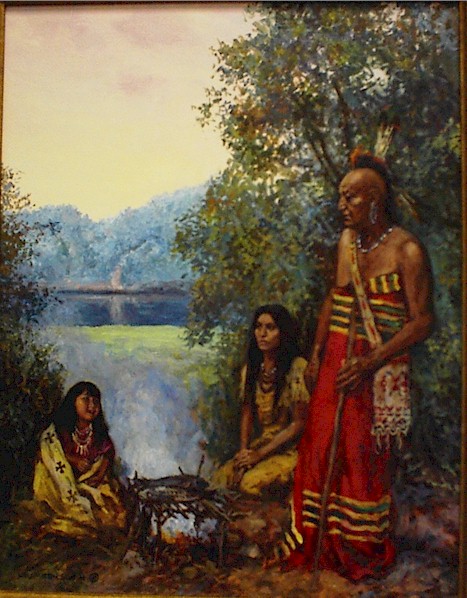|
|
Mohegan Native North Americans, whose language belongs to the Algonquian branch of the Algonquian-Wakashan linguistic stock. Also called the Mohican, they were the eastern branch of the Mahican. In the early 17th cent. the Mohegan occupied most of SW Connecticut, their chief village being on the site of the present village of Mohegan on the Thames River. When the white settlers arrived in this region, the Mohegan and the Pequot were one tribe, living under the rule of Sassacus. Later Uncas, a subordinate chief, rebelled against Sassacus and assumed the leadership of a small group on the Thames River near Norwich. This group was known as the Mohegan. After the fall of Sassacus the greater part of the Pequot joined the Mohegan, who in 1643 numbered some 2,300. Uncas thereby obtained control of the territory of the two tribes. The Mohegan, supported by the British, became one of the most powerful tribes in S New England. As white settlements were extended, the Mohegan sold most of their land and accepted a reservation on the Thames. They declined quickly and were practically extinct by the early 19th cent. The Mohegans became known to the world in the early part of the 19th cent. with the publication of James Fenimore Cooper's novel, The Last of the Mohicans. In the early 1970s the Mohegan and the Pequot shared a small reservation in Connecticut. See A. L. Peale, Uncas and the Mohegan-Pequot (1939). Uncas

c.1588-c.1683, Chief of the Mohegan. Uncas was a subchief of the Pequot, but because of trouble with the chief, Sassacus, he withdrew with his followers and formed a separate tribe, the Mohegan. These people flourished under Uncas's leadership. Uncas was ambitious and sought British support. He was constantly at war with Miantonomo, the Narragansett chief. Both sided with the British in the Pequot War, but despite a treaty of peace (1638) signed between them through the instrumentality of the British, trouble continued. Uncas finally captured Miantonomo in 1643 and killed him, with British acquiescence. For the remainder of his life Uncas was involved in various troubles with the British and other Native Americans. See A. J. Peale, Uncas and the Mohegan-Pequot (1939).
Mahican, Mohican, Mohegan - http://www.hartford-hwp.com/archives/41/007.html
Explanation of the relationships between the Mohegan and the Mahican, and the confusing term Mohican.
Mohegan - http://www.dickshovel.com/moh.html
History of the Mohegan tribe.
Mohegan Tribe Web Site - http://www.mohegan.nsn.us/
History, culture, religion, and events from the Connecticut tribe.
Mohegan--The Wolf - http://www.newigwam.com/hmohegan.html
Historical synopsis of the Mohegan and their associated tribes.
Native American Mohegans - http://members.aol.com/moheganeak/
Mohegan tribal webpage.
Introduction to the Narragansett Language - http://www.library.upenn.edu/special/gallery/kislak/print/will1.html
1643 text written by Roger Williams, founder of Rhode Island. |
|
|
|
|
 Native American Nations
Native American Nations
